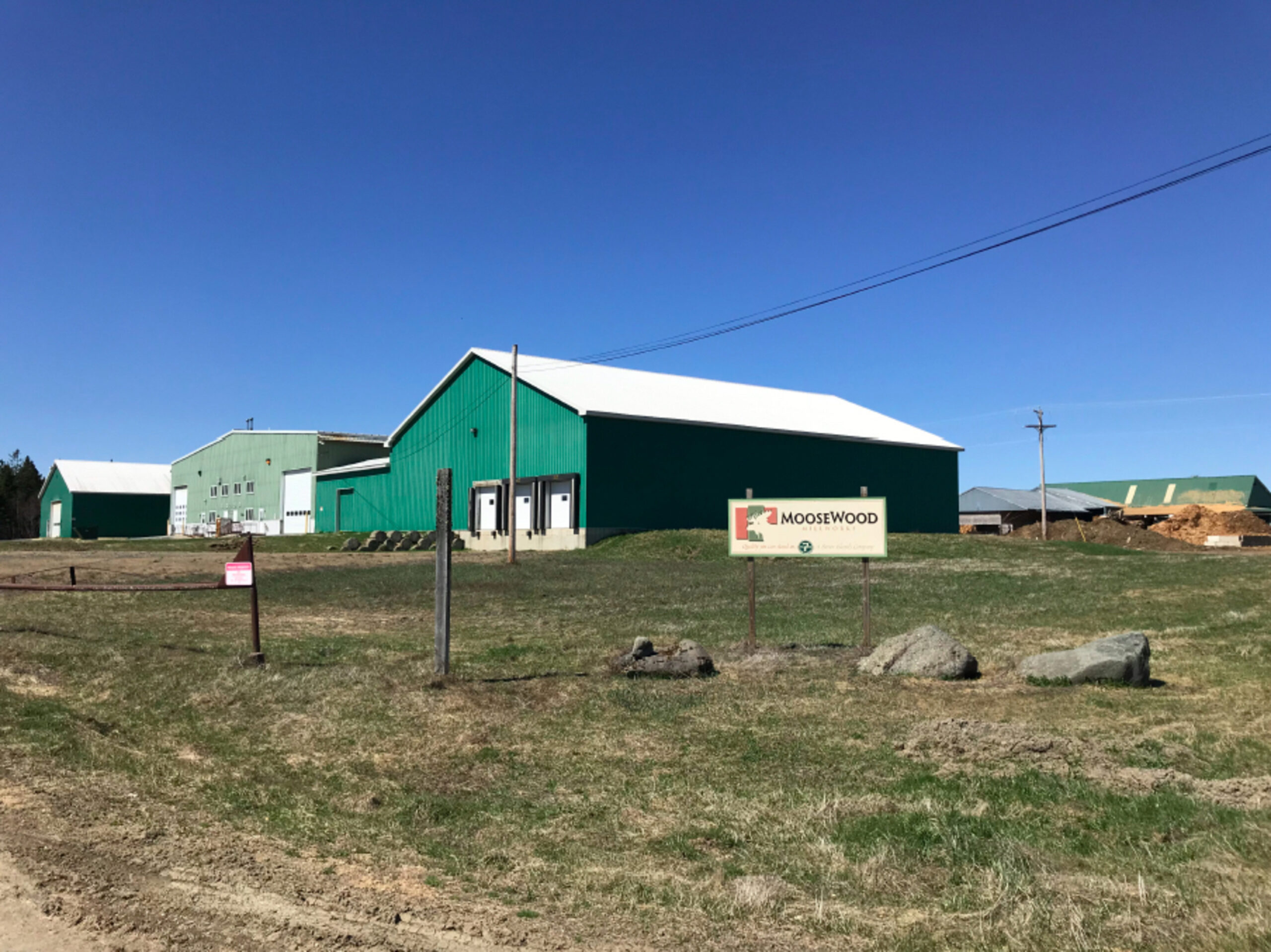
ASHLAND, Maine — The town of Ashland recently joined a new initiative that aims to begin investing in a more environmentally sustainable wood building product that is just making its way to the East Coast.
Original Mass Timber Maine is a three-year market development program with the goal of opening at least one facility to manufacture original mass timber, also known as structural round timber, within the next two years.
Through partnerships with the Ashland-based Seven Islands Land Company and Madison, Wisconsin-based Whole Tree Structures, Original Mass Timber Maine is looking to transform the former MooseWood Millworks, which manufactured hardwood flooring in Ashland, into a fabrication facility for structural round timber.
Seven Islands closed MooseWood in 2017, citing competition from larger natural wood flooring makers and less-expensive synthetic floors as factors. Seven Islands also owns and operates Maine Woods Company, LLC, a hardwood lumber manufacturer, and Portage Wood Products, both located in Portage.
Unlike laminated veneer lumber and similar products, SRT does not require harvesting, slicing or adhesive glue, all of which are part of the process of manufacturing engineered wood products.
“SRT is truly the whole tree, with minimal processing required,” Greg Cabral, director of market development for Original Mass Timber Maine, said “You’re keeping the natural form and structure of trees and benefiting the environment.”
Currently, Original Mass Timber Maine and its partners have teamed up with the University of Maine to study the exact environmental benefits, which they are predicting could include less carbon emissions during manufacturing and less disruption to a natural forest landscape.
The university will also be conducting a cost analysis of various tree species and researching which ones could be more compatible with certain wood products.
“One species [of tree] might make a great column, but might not make a great beam,” Cabral said.
With Ashland serving as the “gateway to the North Maine Woods,” town manager Cyr Martin Jr. said that there is great potential to turn existing or vacant mills into SRT fabrication facilities, which would create more local jobs.
The process of forming Original Mass Timber Maine started around two years ago, Martin noted, when officials from Whole Tree Structures visited Ashland to seek out potential investment opportunities.
“We jumped at the opportunity in a heartbeat,” Martin said. “We’ve got the right type of trees and the facilities. If this goes well, we could become a market model for other communities [in Aroostook].”
Cabral said that although SRT markets have been successful on the West Coast for a while, investors are just now starting to look at East Coast markets.
Original Mass Timber Maine has received $600,000 in grants from the Maine-based Forest Opportunity Roadmap, the Maine Development Foundation and the Future Forest Economy Initiative, affiliated with the Northern Forest Center. The next steps, according to Cabral, will include seeking other potential investors and distribution markets for SRT products.
Although Original Mass Timber Maine is still in the early stages of development, he said that the Ashland area’s viable wood-based resources and investors’ past success indicate potential for market growth in the region.
“We have every indication to believe that this initiative will be successful,” Cabral said. “We’re creating new markets for a product not sold on the East Coast, so the reach of our products could be significant.”







